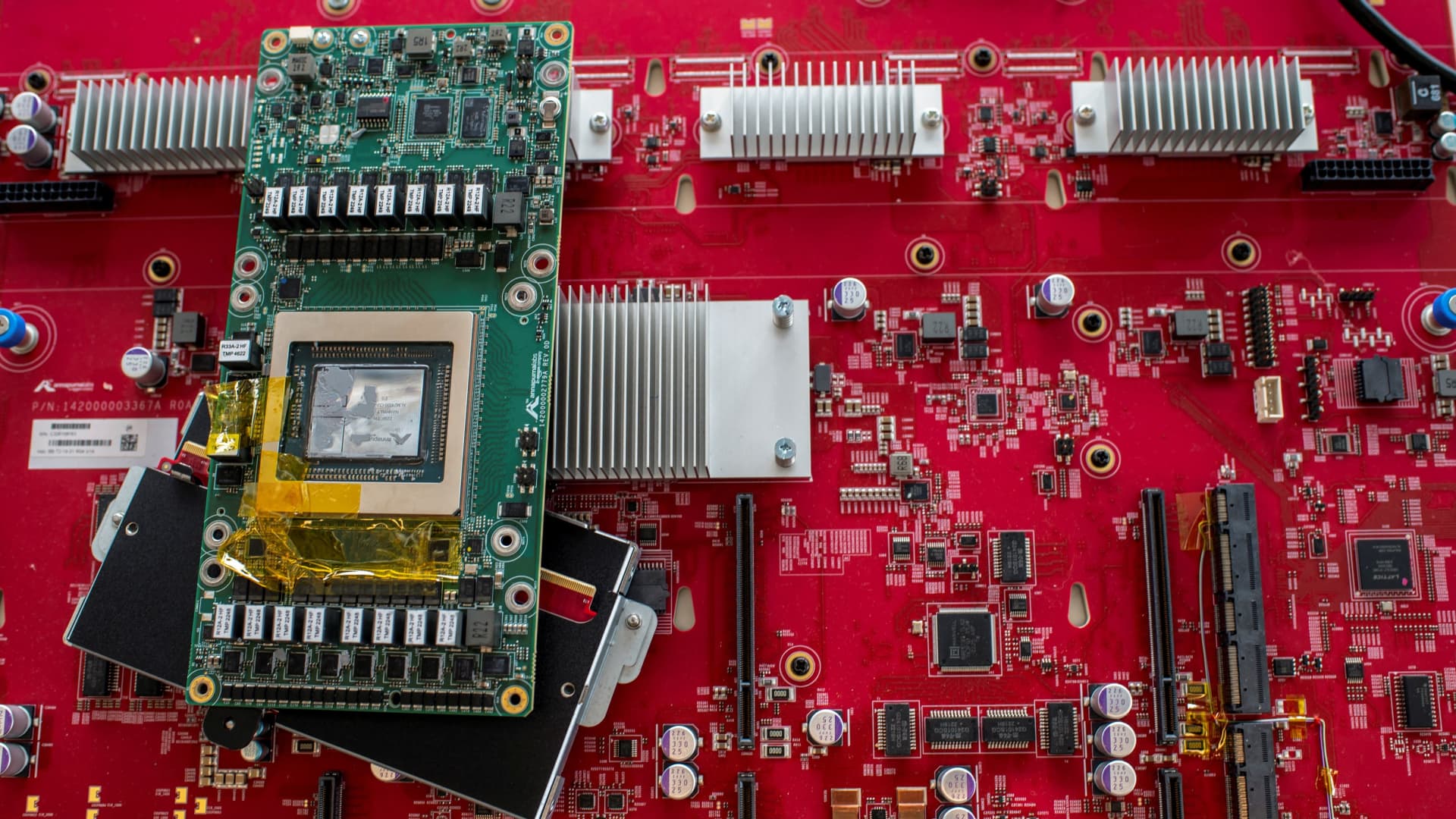Wall Street woke up Monday to an artificial intelligence stock rout driven by the emergence of Chinese startup DeepSeek, which gained buzz over the last week for possibly building a competitive model for a fraction of the money that big U.S. companies such as Meta Platforms and Microsoft are currently spending. Early takes from the Street show analysts and strategists are concerned that capital expenditures could come down initially if the DeepSeek story is even partly true, but that overall it will prove a buying opportunity for the stocks. But for now, a major sell-off was playing out. Nvidia shares were among the hardest hit as the need for the AI leader’s fastest chips were called into question. “The AI investment cycle may be over-hyped and a more efficient future is possible,” wrote JPMorgan analyst Sandeep Deshpande, in a note. Here’s a wrap of what major analysts are saying: JPMorgan analyst Sandeep Deshpande: “Investors are concerned that rather than impede China’s progress in AI, the US restrictions have engendered innovation that has enabled the development of a model that prioritises efficiency. … The news over the past few months has been about the huge capex announcements of Microsoft, which is spending $80bn in ’25, while Meta recently announced investments between $6bn and $65bn. Open AI also announced that the Stargate project intends to invest $500m over the next four years building new AI infrastructure in the US. Thus, with these considerable sums flowing into AI investments in the US, that Deepseek’s highly efficient and lower resource-intensive AI model has shown such significant innovation and success is posing thoughts to investors that the AI investment cycle may be over-hyped and a more efficient future is possible.” Roth analyst Rohit Kulkarni: “Are U.S. companies (incl. Stargate) spending a bit too much on AI data centers? Yes, we are afraid so. We believe ‘necessity is the mother of invention’, and U.S. companies have likely fallen into the fallacy of access to unlimited capital…As 2025 progresses, we believe investors will begin to ask U.S. Big Tech hard questions on ways they are exploring to optimize AI capital intensity.” Jefferies analyst Edison Lee: “Re-evaluating computing power needs could cause 2026 AI capex to fall (or not grow)…We believe DS’s success could drive two possible industry strategies: 1) still pursue more computing power to drive even faster model improvements, and 2) refocus on efficiency and ROI, meaning lower demand for computing power as of 2026.” Bernstein analyst Stacy Rasgon: “Is DeepSeek doomsday for AI buildouts? We don’t think so…we believe that 1) DeepSeek DID NOT “build OpenAI for $5M”; 2) the models look fantastic but we don’t think they are miracles; and 3) the resulting Twitterverse panic over the weekend seems overblown.” Though Rasgon acknowledged DeepSeek’s models are good. The analyst kept his outperform ratings on Nvidia and Broadcom, advising clients not to buy into the doomsday scenarios. Citi analyst Atif Malik: “While the dominance of the US companies on the most advanced AI models could be potentially challenged, that said, we estimate that in an inevitably more restrictive environment, US’ access to more advanced chips is an advantage. Thus, we don’t expect leading AI companies would move away from more advanced GPUs.” Malik maintained a buy rating on Nvidia . Raymond James’ semiconductor analyst Srini Pajjuri: “If DeepSeek’s innovations are adopted broadly, an argument can be made that model training costs could come down significantly even at U.S. hyperscalers, potentially raising questions about the need for 1-million XPU/GPU clusters as projected by some…: A more logical implication is that DeepSeek will drive even more urgency among U.S. hyperscalers to leverage their key advantage (access to GPUs) to distance themselves from cheaper alternatives.” Pajjuri reiterated buy ratings on Nvidia and ASML. Cantor analyst C.J. Muse: “Following release of DeepSeek’s V3 LLM, there has been great angst as to the impact for compute demand, and therefore, fears of peak spending on GPUs. We think this view is farthest from the truth and that the announcement is actually very bullish with AGI seemingly closer to reality and Jevons Paradox almost certainly leading to the AI industry wanting more compute, not less.” Muse said buy Nvidia on any weakness.





